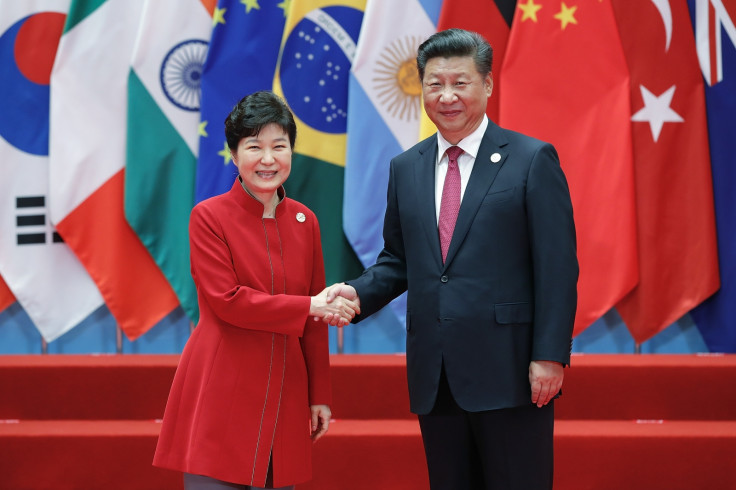Xi Jinping to Park Geun-hye: 'Mishandling' North Korea issue could intensify conflicts in Korean peninsula
Xi Jinping told Park Geun-hye that both countries should respect each other's core interests.
China's President Xi Jinping has reiterated the country's opposition to the decision by the US and South Korea to deploy the Terminal High Altitude Area Defence (Thaad) system in the Republic of Korea (ROK) amid rising threats from North Korea. He warned his South Korean counterpart, Park Geun-hye, on Monday, 5 September that "mishandling the issue" could "intensify conflicts" in the Korean peninsula.
The two country heads met on the sidelines of the G20 Summit in Hangzhou, China. Earlier, Xi had conveyed the same thoughts to US President Barack Obama when the two leaders had an informal meeting on the eve of the summit.
Xi asserted that both Beijing and Seoul are "close neighbours with broad common interests" in establishing regional peace, Xinhua reported. He also told Park that it is among China's commitments to denuclearise the Korean Peninsula and safeguard peace and stability in the region. "China is willing to work with the ROK to better protect and advance their hard-won ties," Xi said, noting that both the countries should respect each other's core interests to ensure their renewed relations are "stable" and long-lasting.
He urged his counterpart to stick to the six-party talks platform to resolve differences and concerns in a comprehensive and balanced way to ensure long-term peace in the region. "China and the ROK should cherish their political mutual trust, safeguard their cooperative foundations, and overcome difficulties and challenges, in order to put bilateral ties on the right track toward stable and healthy development," Xi said. He expressed willingness to deepen cooperation with Seoul under multilateral frameworks.

© Copyright IBTimes 2025. All rights reserved.





















